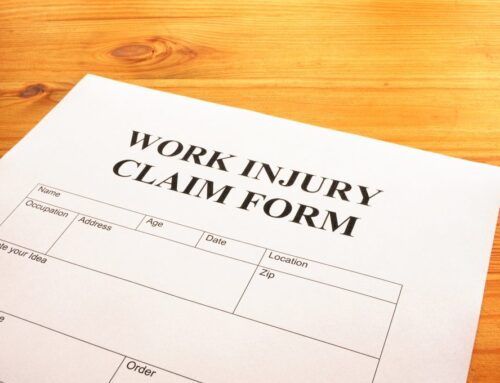By Tanya Phillips
If you are unable to work due to an illness or injury, you are entitled to State Temporary Disability Benefits. The main requirement is that you are employed by an eligible New Jersey company. You can receive State temporary disability benefits for up to six months. Your weekly benefits are two/thirds (66 2/3%) of your gross average weekly wage. There is a maximum amount you can receive per week. If your disability began after January 1, 2017 the maximum weekly amount is $633.
To secure benefits you must complete an application which can be found here. Your doctor and employer must complete portions of your application. Your claim for disability should be filed within thirty days of the start date of your disability. If you file after the thirty days, you need to show good cause as to why it was not timely filed.
There are two exceptions to receiving State Temporary Disability Benefits:
- If you are injured on the job, you should secure your benefits through your employer’s workers’ compensation carrier. Workers’ compensation temporary disability benefits are 70% of your average gross weekly wage with a maximum weekly benefit of $896 in 2017.
- Some companies have their own private short-term disability policies and do not pay into the State system. Your employer must provide you with this information and you will need to fill out a similar application for the private disability carrier.
If your disability is expected to last for at least a year, you may want to consider applying for Social Security Disability benefits. Your condition must interfere with basic work-related activities for your claim to be considered.
You may qualify for Social Security benefits if you have worked long enough and paid into Social Security which is usually about ten years. After confirming your eligibility for benefits you must prove that you are disabled by Social Security standards. Social Security considers you to be disabled if:
- You cannot perform the work that you did before;
- You cannot adjust to other work because of your medical condition(s); and
- Your disability has lasted or is expected to last for at least one year or to result in death.
You can submit an application for Social Security Disability benefits online or by scheduling an appointment at your local Social Security office.
When determining whether you are disabled Social Security looks at many factors in addition to your health condition including your age, education and experience level. Your condition must be severe enough to interfere with basic work-related activities.
Social Security maintains a list of disabling medical conditions. If the condition you suffer from is not contained on their list, Social Security will compare the severity of your condition to those contained on the list. If Social Security finds that your condition is not as severe as those contained on their list, they will then examine whether you can perform the work you did before your alleged disability. If they determine that you are able to do your past job(s), your application will be denied.
If Social Security determines that you are not able to perform your past work, they will analyze whether you are able to do any other type of work. If Social Security determines that you are unable to adjust to another type of work, then they will find you disabled. If, however, they find based on your age, education and experience you will be able to perform some other type of work with your health condition, they will deny your claim.
If Social Security denies your claim, you can appeal by filing a Request for Reconsideration within sixty days. This is the first appeal and Social Security will review your claim once more. If they agree with their initial decision and deny your claim again, then you will have another opportunity to appeal by filing a Request for a Hearing before an Administrative Law Judge.
This process can be overwhelming when you are dealing with significant health issues. Social Security is one of my firms practice areas and we welcome your questions.


